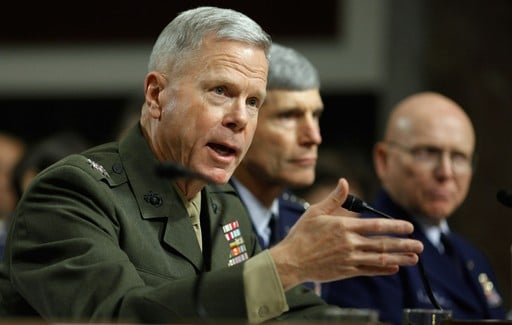
Before taking my reader on a brief recollection of the Battle for Outpost Harry in the Korean War this past week, I had been writing about the challenges someone in the military has when it come time to re-enlist. Visiting Outpost Harry sixty years after the fact was that so few American have any idea about war and its effects on the warriors who are called upon to fight it. Sure we see Hollywood’s version and occasionally celluloid that comes close in movies like Band of Brothers, Saving Private Ryan and Patton, but to the overwhelming majority of Americans, that’s as close as it gets.
Band of Brothers and Saving Private Ryan and Patton are about as close as it gets
Why it’s important for everyone to get a better feel for what war is all about is because when a soldier is deciding to re-enlist or go back to civilian life, the support we owe those who serve requires the commitment of the nation, both while in the military and in civilian life. If the choice is to re-enlist, the military now offers programs to help the soldier work through the demons of haunting recollections of war bringing on depression, anger, loss of intimacy with one’s spouse, and being drawn into a situation where normal communication is not possible. This can lead to substance and/or physical abuse, a broken marriage, suicide or other abnormal behavior.
If the choice is to leave the military it’s not the same as coming out of school, finding a job, getting married, raising a family, and living happily ever after. Military without having to face hostile action can be traumatic enough because of the regimen of day to day life instills order and discipline. Civilian life on the other hand, is a free-for-all environment…and as Darwin postulated, “survival of the fittest”. If the challenges of life in the civilian world were not enough, add in the psychological effects the loss of the discipline and regimen, and effects of combat have on an individual. It is a formula for disaster.
As has been note in a previous column, this problem has been with civilized society a long time, dating back to the earliest known conflicts. All one has to do is review conversations with those who have served. Nearly everyone agrees that a soldier is “just not the same person as he/she was before military service”. Some attribute this to maturity, which for many, is a good thing. But just look at documentary films which carry interviews with the soldiers and civilians who were present in the campaigns covered by the film. Even 40-50-60 years after the fact, the interviewee can barely face the realities they experienced. Nearly all break-down, well-up with tears, and talk about the ensuing anger they continue to carry, well after the fact. This is post traumatic stress disorder (PTSD), which we have identified, studied, and are able to provide treatment with counseling, and in some cases, medicine.
For the rest of society, there is much that can be done to “support the troops”. You see the bumper stickers and magnetic signs that profess supporting the troops. They have become a popular trend, but when the soldiers are at war, the only support people can really do is encouraging the politicians to clearly define the objective, finance the effort giving the troops what they need to win, and winning the damned thing. That seems pretty simple. But that is not where it stops. We have to bring them home and make sure they are integrated back into society. For most Americans, that’s where the real support is needed and it means providing tax dollars to fund the counseling, volunteers to assist the effort supporting the soldier and their family, and personal financial contributions needed to insure sustainability of the programs. In short we all need to be involved.
Monday we will carry on with a number of programs designed to help and what you can do to encourage those who need it, find the help to rebuild their lives.

Following his service in the Marine Corps Ed Mattson built a diverse career in business in both sales/marketing and management. He is a medical research specialist and published author. His latest book is Down on Main Street: Searching for American Exceptionalism
Ed is currently Development Director of the National Guard Bureau of International Affairs-State Partnership Program, Fundraising Coordinator for the Warrior2Citizen Project, and Managing Partner of Center-Point Consultants in North Carolina.
Mr. Mattson is a noted speaker and has addressed more than 3000 audiences in 42 states and 5 foreign countries. He has been awarded the Order of the Sword by American Cancer Society, is a Rotarian Paul Harris Fellow and appeared on more than 15 radio and television talk-shows.
ATTENTION READERS
We See The World From All Sides and Want YOU To Be Fully InformedIn fact, intentional disinformation is a disgraceful scourge in media today. So to assuage any possible errant incorrect information posted herein, we strongly encourage you to seek corroboration from other non-VT sources before forming an educated opinion.
About VT - Policies & Disclosures - Comment Policy




